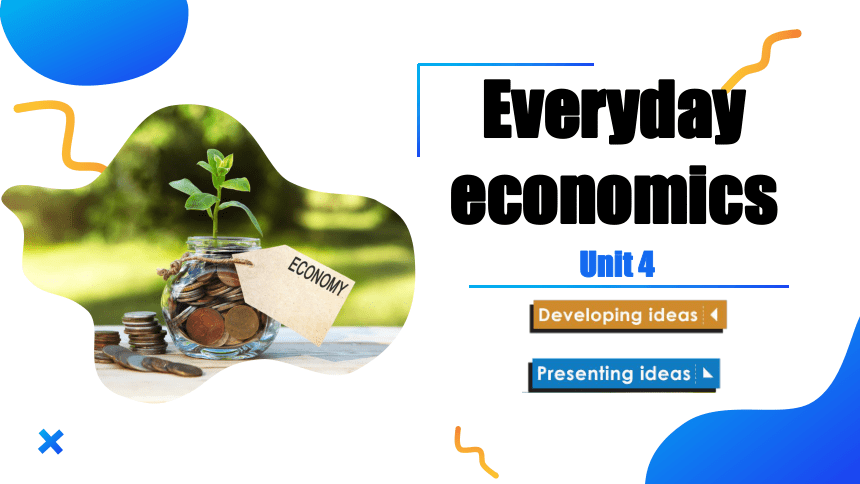(
课件网) Unit 4 Everyday economics PART.01 Learning Objectives Understand the content of the text and deepen their understanding of the thematic significance of the unit. 01 Connect with their own reality and further understand daily life and emerging economic phenomena and economic activities dialectically and deeply, and establish correct values and money consciousness. 03 Master the basic characteristics and common reading methods of “positive and negative argumentation” style argumentative essays and students can use what they have learned to write an argumentative essay. 02 Learning Objectives Through reading, students can understand the content of the text and deepen their understanding of the thematic significance of the unit. And be able to use the knowledge learnt to write an argumentative essay. Students can connect with their own reality and further understand daily life and emerging economic phenomena and economic activities dialectically and deeply, and establish correct values and money consciousness. 01 02 Teaching Focuses and Anticipated Difficulties PART.02 Lead-in Look at the pictures and find out what they have in common. They are shared items. What is the main idea of the video Read Leo’s travel notes and answer the questions. 01 1. What are the differences between Leo’s two trips In 2008, Leo took a taxi to the hostel from the airport and it cost him a fortune! In 2018, the trip from the airport to the city centre was much cheaper because it was a shared ride. In 2008, Leo stayed in a hostel, while in 2018 he stayed in a shared flat. In 2008, Leo didn’t know how to get to Houhai, while in 2018 he had a nice trip around Houhai by riding a shared bicycle. In 2008, Leo could only have a pizza in the hostel alone and he didn’t know where to have good Chinese food. In 2018, he shared a delicious meal of Chinese cuisine with some other backpackers at Chef Cui’s restaurant. In 2008, Leo had a battery problem with his camera. He didn’t have this problem in 2018, because he could use the shared power banks. 2. Which one do you think was more fun Give your reasons. Look at the title of the passage and talk about your understanding of it. 02 Have sth in common Tell sb sth Use/experience sth with sb what how why PART.03 Reading Skim the passage and summarize the structure. Skim the passage and summarize the structure. Part 1 Part 2 Part 3 Part 4 Para. 3 Para. 4 Para. 1-2 Para. 5 Introduction of sharing economy The benefits of sharing economy The problems of sharing economy The conclusion and prediction on sharing economy Now read the passage and check your understanding. We’ve been told since we were toddlers that “It’s good to share”. Parents and teachers keep reminding us to share toys, snacks, books, happy memories, and sometimes even sorrows with others. When we grow up, we share photos, life stories and opinions with people around us and with those we don’t know vi ... ...

